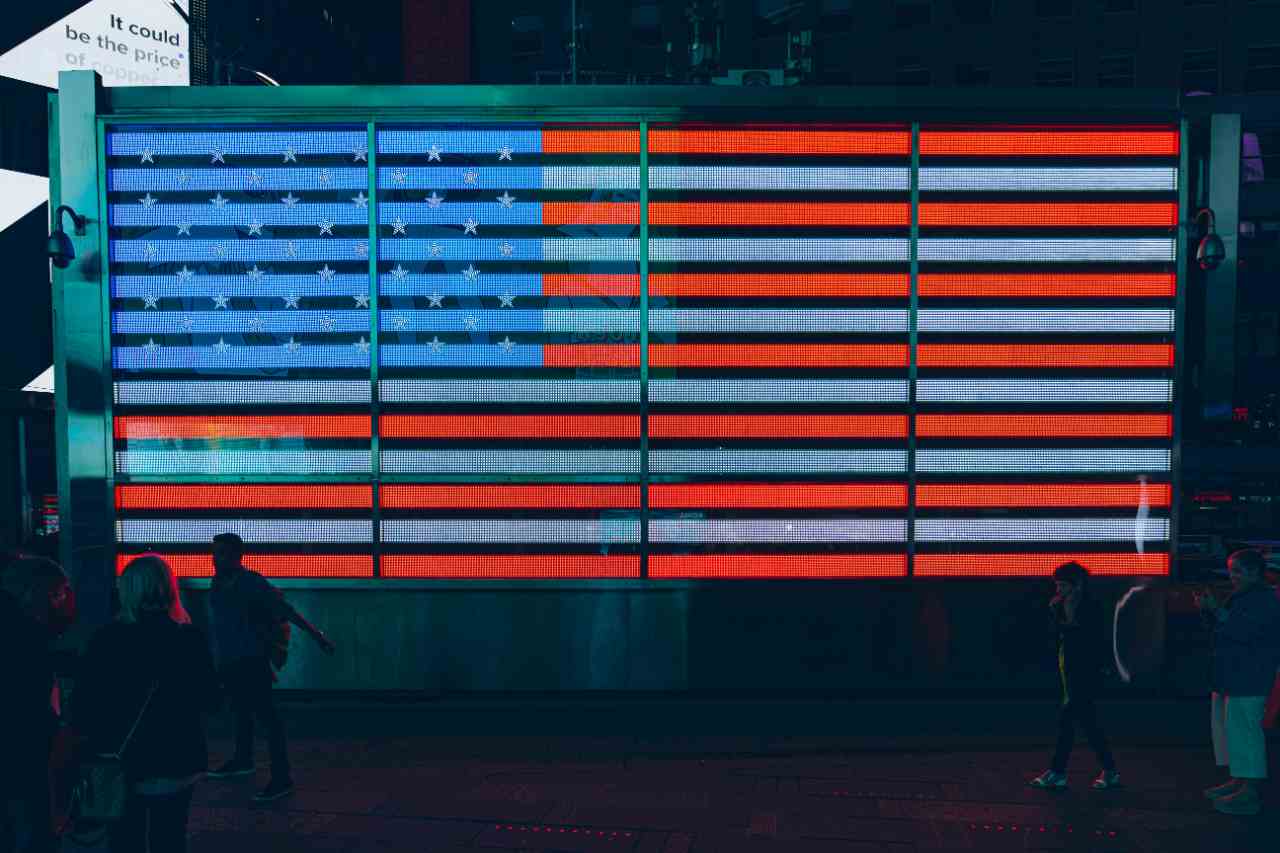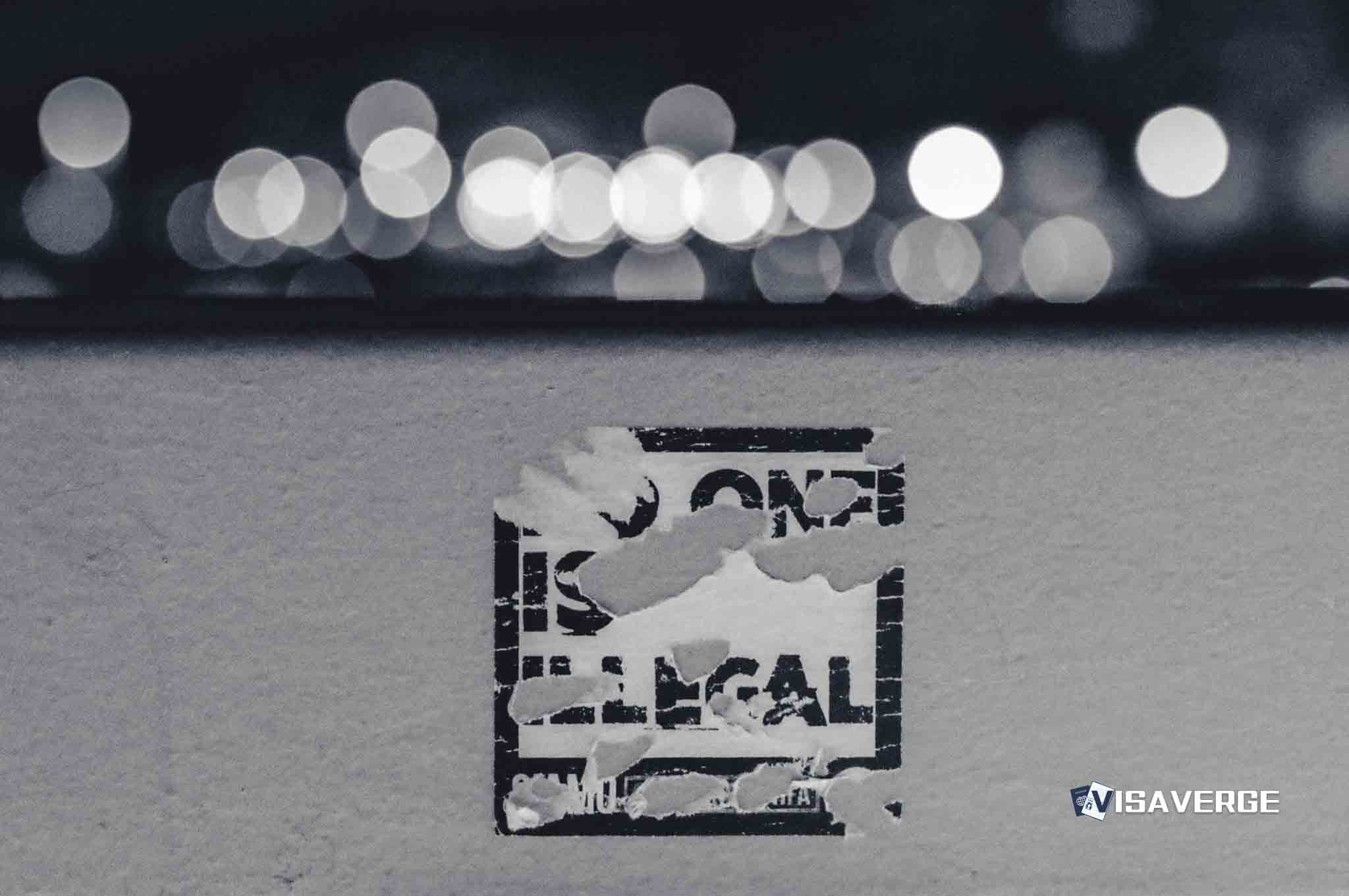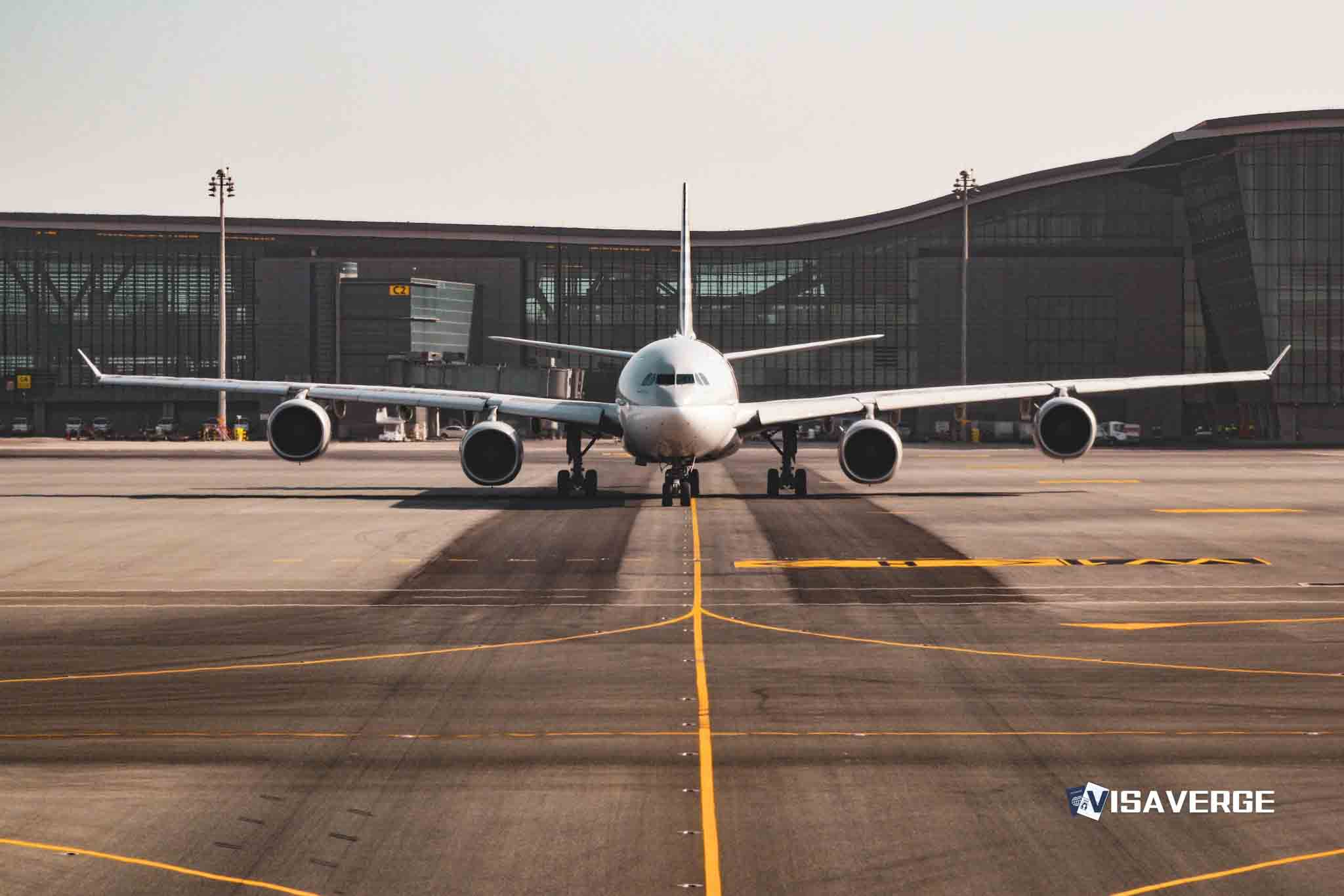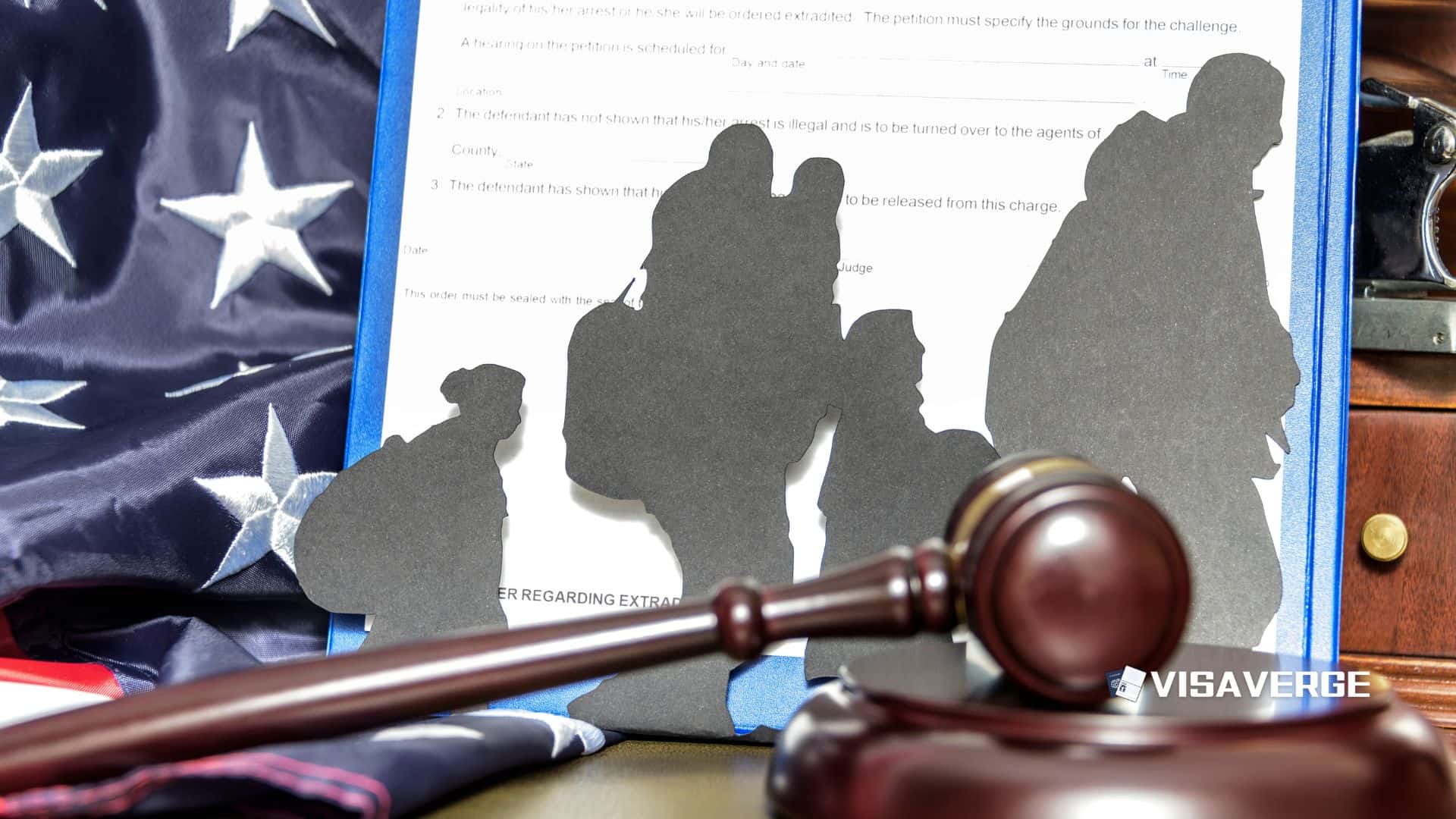(NEW YORK, NEW YORK, USA) On a chilly Friday night in November, immigrants and their children packed into a basement theater on Manhattan’s Lower East Side, turning anxiety about the Trump-era migration crackdown into laughter. On November 14, 2025, the monthly comedy show Immigrant Jam filled Caveat, a small venue with a big reputation for smart political shows, with jokes about visas, borders, and belonging in today’s United States.
Opening and Host

German-born comedian and actress Lucie Pohl hosted the night, opening with a question that landed like a jab: “Are there any immigrants here? Or did we get rid of all of them?” The line drew loud laughter, but also nods of recognition from a crowd that included green card holders, naturalized citizens, and visitors wondering how long they’d be allowed to stay.
Pohl moved to the United States from Germany at age eight and later built a career in New York’s comedy and theater scene. She created Immigrant Jam during President Trump’s first term, when heated debate over migration and high-profile enforcement actions left many foreign-born New Yorkers feeling exposed.
“I felt sad and sort of scared,” she has said. “So I wanted a space where immigrants could feel joyful together instead.”
Shift in Tone and Political Context
The latest edition of the show came as national politics around immigration grew even more tense. Pohl told the audience that the tone of her immigration comedy has shifted as federal officials step up harsh language and enforcement.
- “The rhetoric has been dialed up,” she said onstage.
- “Not only the rhetoric, but the government has taken such extreme actions against immigrants that there’s more of a sense of urgency now.”
These comments framed the night: humor as coping, but with an edge of urgency.
Performers and Material
The lineup reflected the broad mix of people reshaping New York. Australian comic Jenny Tian joked about the bureaucratic energy it takes just to get onstage in the city.
- “To get here to perform for you guys,” she said, “I had to spend two years doing paperwork proving myself as an artist. Proving my comedic abilities to your government. And I managed to get in.”
That punchline landed as lived truth for many. Artists and performers often face strict visa rules, needing to demonstrate “extraordinary ability” or compile extensive portfolios to qualify for entry.
- Analysis by VisaVerge.com notes that comedy and other creative fields are among areas where applicants must produce oversized portfolios just to persuade officials they deserve legal work status.
Argentinian comedian Martin Calles, who has lived in the United States for 35 years, contrasted the mood at Immigrant Jam with typical stand-up clubs.
- “American comics, they talk about living in their parents’ basements and doing drugs,” he told the crowd. “We talk about something else. This is really more about, like, ‘I took my citizenship test.’”
That line earned knowing groans from those who had recently sweated through the citizenship exam themselves.
The Citizenship Test and Practical Concerns
For immigrants aiming to become citizens, the citizenship test is a consequential hurdle. The exam, overseen by U.S. Citizenship and Immigration Services (USCIS), covers civics questions and English skills that can shape a person’s future.
- The agency’s official study materials are available on the USCIS citizenship resource page.
- In many performers’ homes, these study guides sit on the same shelves as comedy notebooks—evidence of the balancing act between art and bureaucracy.
Audience and Atmosphere
The audience at Caveat mirrored the performers’ diversity.
- A Colombian software engineer sat next to a Bulgarian graduate student.
- Nearby, an Israeli couple shared a table with a young American whose parents came from Pakistan.
For many, the show served as a rare space where jokes about accents, airport security, or suspicious border officers drew empathy instead of side glances. The comedy largely stayed light.
- Comics teased American cultural habits—oversized coffee cups, office small talk, casual geography mistakes—without turning mean.
- Pohl reminded the crowd that the show was built as a celebration, not a complaint session.
“I wanted this to be about joyful coming together, not fearful coming together around immigrants,” she explained in an earlier interview.
Local Politics and Broader Risks
New York’s political climate helped make that tone possible. In a city that recently chose a Muslim mayor and where foreign-born residents make up nearly a third of the population, immigration jokes often land as shared experience rather than partisan attack.
- On that November evening there was no heckling, no shouted insults—only a few groans when a punchline missed and quick apologies when comics tripped over each other’s home countries.
Outside New York, the same jokes might feel riskier. The United States remains deeply polarized over immigration.
- Some regions cheer strict enforcement; others call for broad legalization.
- A show that proudly brands itself as immigration comedy—and invites performers to mock border bureaucracy—could draw protests or worse.
Pohl acknowledged the limits of the downtown reception, noting that the welcome she enjoys at Caveat may not extend to every corner of the country.
What the Show Provides
Within Caveat’s brick walls, the point of Immigrant Jam was less protest than survival. By laughing together at long airport interrogations, confusing forms, and suspicious neighbors, comics and audience members alike pushed back against a climate that often paints them as threats.
- Claiming the microphone for a few minutes was described as a quiet form of power in a time when many immigrants worry about policy changes they cannot control.
As the night wrapped, Pohl thanked the crowd for coming “to celebrate immigrants, not be afraid of them.” People lingered at the bar, trading stories about:
- visa denials
- delayed work permits
- awkward questions from customs officers who struggled to pronounce their names
A young woman from Eastern Europe said it was the first time she’d heard people laugh openly about deportation fears that usually keep her up at night. For that hour, she finally felt at home.
Closing Takeaway
For Pohl and her fellow comics, that reaction is the reason to keep returning to Caveat—turning fear into punchlines and proving that immigration comedy can offer something sturdier than outrage: community.
This Article in a Nutshell
Immigrant Jam’s November 14, 2025 show at Caveat gathered a diverse audience to laugh about visas, borders and belonging. Founder Lucie Pohl framed the comedy as both relief and response to heightened federal rhetoric and enforcement. Performers spotlighted visa bureaucracy, the citizenship test and the creative labor needed to prove eligibility. Within New York’s supportive scene, the event offered empathy, community and a way to process fears—while acknowledging that such reception may not extend nationwide.












